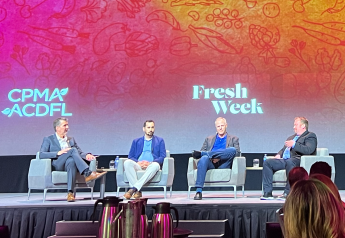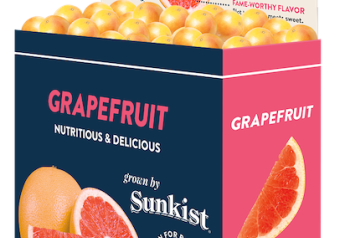A big-picture look at Montreal’s sustainable agriculture efforts

Most people embark on a hodgepodge approach to building sustainability into their business plan, said Andrew Southwood, owner of Montreal-based Fresh Xpressions, a consulting agency that helps companies with business strategy and development using a sustainability lens.
“It’s easiest to slap up a few solar panels and get some PR on it and say, ‘See how sustainable I am?’” Southwood said.
“You have implemented one sustainable action into your business. The whole framework that I use has 23 different guiding principles. I look at them like scaffolding, or better yet, Legos: You can mix and match in many ways, in a way that suits your company, but it’s crucial in benchmarking yourself toward sustainability.”
Jocelyn St-Denis, executive director of the Quebec Produce Growers Association, is trying to reorganize that framework for the whole province’s fresh, field-grown vegetable industry. Association leadership is working on a horticultural innovation fund with public-private support using mandated contributions from growers and government.
He’s hoping it will be established by 2022.
The industry must constantly improve its farming practices to minimize impacts on surface water, groundwater, soil and greenhouse gas emissions, St-Denis said.
Sustainability isn’t only an altruistic endeavor for the environment.
Growth in global demand, limited access to natural resources, climate change, environmental protection and economic and societal issues such as food safety and security and nutritional value, all exert enormous pressure on the agricultural and agri-food communities, he wrote in “A Word from the Executive Director: The need for setting up an innovation fund” on the association website.
Quebec needs to up its game to stay competitive: In the past decade, Quebec has lost 1% of its market every year to Ontario.
Compared to Ontario, Quebec invests about 50% less in research and only about 10% of what the U.S. funnels toward research, he said.
The province’s fruit and potato industries have a fund, and the greenhouse sector is working on it as well, St-Denis said.
This innovation fund would be funded by a compulsory contribution from field vegetable producers who are members of Agri-Québec, equivalent to 0.1% of declared eligible net sales. The investment of market gardeners in this fund would be around $450,000 annually. Considering the leverage effect, more than $3 million would be invested annually in joint projects or projects specific to groups of crops.
The Canadian Horticultural Council, which represents all the country’s provincial fruit and vegetable associations, said “Do it. Let’s see how it works, and we’ll look into it nationally after, in maybe five or six years,” St-Denis said. “So we are the guinea pigs.”
The 2020 local growing season’s extreme weather — late frosts, drought-like conditions, multiple intense heat waves, heavy rains — plus the foreign labor delays and shortages caused by the coronavirus pandemic have made the need for this fund even more pressing.
About 30 minutes south of Montreal, Sherrington, Quebec-based Vegpro International is striving to find ways with the help of industry associations and government to reduce water use and stop soil erosion, said Pierre
Dolbec, vice president of sales and procurement for commodities division.
“That’s something that the company believes in, and upper management is behind that 100%,” Dolbec said. “There’s a lot of soil erosion here with the wind, and it’s muck soil and it dries. Once it’s gone, it’s gone.”
Using partnerships with research universities, the government and growers, the fund can introduce innovative techniques and higher-tech operations that help growers weather extreme conditions better and reduce dependence on labor, St-Denis said.
“Society is giving us more challenges and more rules, and to use less pesticides, and this comes with a cost,” St-Denis said.
“You need to find replacement methods, and you need to do research. And there’s climate change affecting the Northern Hemisphere. Warmer weather means more diseases, so we need to look at new varieties, new techniques and adapt to that,” he said.
“Everybody has to do more research for that. That’s the name of the game. You have to find funding for it and getting it from growers is hard. The whole industry will benefit from it. If it’s private investment, only that company will benefit.”
Related Content:
Video: How Quebec's Vegpro International and others nearby are doing
QPMA’s virtual conference sticks to basics
Industry Leaders Headline The Packer’s Sustainable Produce Summit







